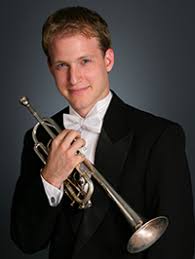It has just been made public that Gustavo Gimeno of the Luxembourg Philharmonic is to be the next music director of the Toronto Symphony. He starts in 2020.
We understand that Toronto’s CEO Matthew Loden flew to Amsterdam a couple of weeks ago to snap him up. Here’s a shot of them together.

This is a good catch for Toronto. Gustavo Gimeno, now 42, was a percussion player in the Royal Concertgebouw Orchestra when Mariss Jansons made him assistant conductor in 2012. He has never looked back.
Ludwig Van Toronto has the first interview with GG here.
Message received:

The Philharmonic Society of Orange County announced today the appointment of Tommy Phillips as its new President and Artistic Director, effective October 1, 2018. Phillips succeeds John Mangum, who stepped down from this role in April to become the Executive Director and Chief Executive Officer of the Houston Symphony.
In a career spanning more than 15 years, Phillips is known for his innovative programming ideas, reliability and trust within the classical music industry, and for his capacity for creative ingenuity. Holding artistic positions and programming consultancies at orchestras across the country, Phillips has guided music directors, and helped build strong foundations and connections for institutions including the San Diego Symphony, San Francisco Symphony, Minnesota Orchestra, Grand Rapids Symphony, San Antonio Symphony, Charlotte Symphony, Pacific Symphony, and Mainly Mozart Festival, among others.
Following his passion for cultural exchange and musical ambassadorship, Phillips is also the co-founder of Black Cats Production Company, an international touring and performing arts organization bringing performing ensembles to China and Chinese ensembles to the United States. His extensive list of clients includes violinist Joshua Bell, the Shanghai Quartet, Detroit Symphony Orchestra, and France’s Malandain Ballet Biarritz.
Of itself, of course not.
But when the words are as sensitive and the score as intuitive as Boaz Ben-Moshe’s Away From Me at the Israel Music Festival yesterday, we are able to imagine that music can in some way represent the most difficult and impenetrable of human conditions.
The score occupied a zone between modern and post-modern, with elements of Boulez and Tippett to the fore and a taste of where Thomas Ades appears to be these days. Meirav Eldan was the vocalist. The audience was gripped. One of the poets, transitioning from male to female, sat intently in the shadows.
She will be the subject of a major feature at the weekend.
An all-absorbing experience. And a very Israeli one.
English National Opera is marketing the Richard Strauss shocker with this animal Barbie image.

The images for other productions are no better. See for yourselves.
It keeps producing uninteresting winners. Now why is that?
John Marks has some thoughts:
The problem is, violin competitions give prizes to violinists who play like violin-competition winners. At least in musical terms, that is not always a good thing. Most of the people I associate with, pretty much know what “playing like a violin-competition winner” means. If any of you general readers are in doubt, let me take a stab at a definition:
Playing like violin-competition winner means playing with amazing facility and (usually) fluidity, but too often in a reductionistic way that reduces great music to a series of technical challenges, empty gestures, or opportunities for showing off.
More?
How about: Hyper-fast playing, to the point of an unnatural lack of musicality; a hard-edged, relentlessly brilliant sound (think of your flat screen TV’s “Enhanced Edge Definition”); exaggerated articulation (ditto); playing loudly and with a lack of dynamic nuance; a lack of emotional engagement and range (which is not made up for by the usual constant and exaggerated facial expressions); in some cases, a tendency to play slightly sharp (in order to “stand out”); in some cases, a generalized lack of musical good taste; and a dead-serious earnestness, to the point of missing musical jokes, parodies, and satire.
The bottom line: Your usual Competition Winner can be relied upon to have weapons-grade bowing and a stupefyingly agile left-hand technique in the service of music-making that is often uninvolving and ultimately forgettable.
More here.

The Warsaw National Philharmonic has named Andrey Boreyko as its next music director, starting in 2019. He succeeds the veteran Jacek Kaspszyk.
Boreyko, 61, is presently head of the Artis-Naples Orchestra in Florida. The national-minded Polish media claim him as one of their own, or at least 50 percent.
Born in 1957 to a Polish father and a Russian mother, Boreyko spent his childhood in Poland. He moved to Leningrad to study conducting and, having returned to Poland in 1991, he served for four years as music director of the western Polish Poznań Symphony Orchestra.

Germany’s highly coveted ARD competition in trumpet was won by Selina Jasmin Ott, 20, from Austria. She is the first ever female winner.
Other ARD winners:
Diyang Mei (24) from China won the viola contest.
The Aoi Trio from Japan won the piano trio award.
And, as previously reported, a Russian mezzo won the singing contest.

The New York Philharmonic has told the New York Times that it had dismissed two players for misconduct. No further details have been given.
The players dismissed are central figures in the orchestra: the principal oboe Liang Wang, and associate principal trumpet Matthew Muckey.

Their dismissal awaits approval from the musicians’ union.
NY Phil President Deborah Borda said: ‘the New York Philharmonic is committed to providing an environment of respect and dignity for all of our Philharmonic family.’
The New York Times delves no deeper.

UPDATE: Statement from the NY Philharmonic to Slipped Disc:
The New York Philharmonic received reports that two musicians, Liang Wang and Matthew Muckey, engaged in misconduct. The Philharmonic retained former federal judge Barbara Jones of the Bracewell law firm to investigate the matter. Following the investigation, the Philharmonic advised the musicians that their employment was terminated. At the request of their union, the Philharmonic delayed the implementation of the termination and placed the musicians on an unpaid leave of absence pending the union’s review of the matter.
Message to commenters: Be aware at all times of the libel penalties you may face for naming an alleged perpetrator.








